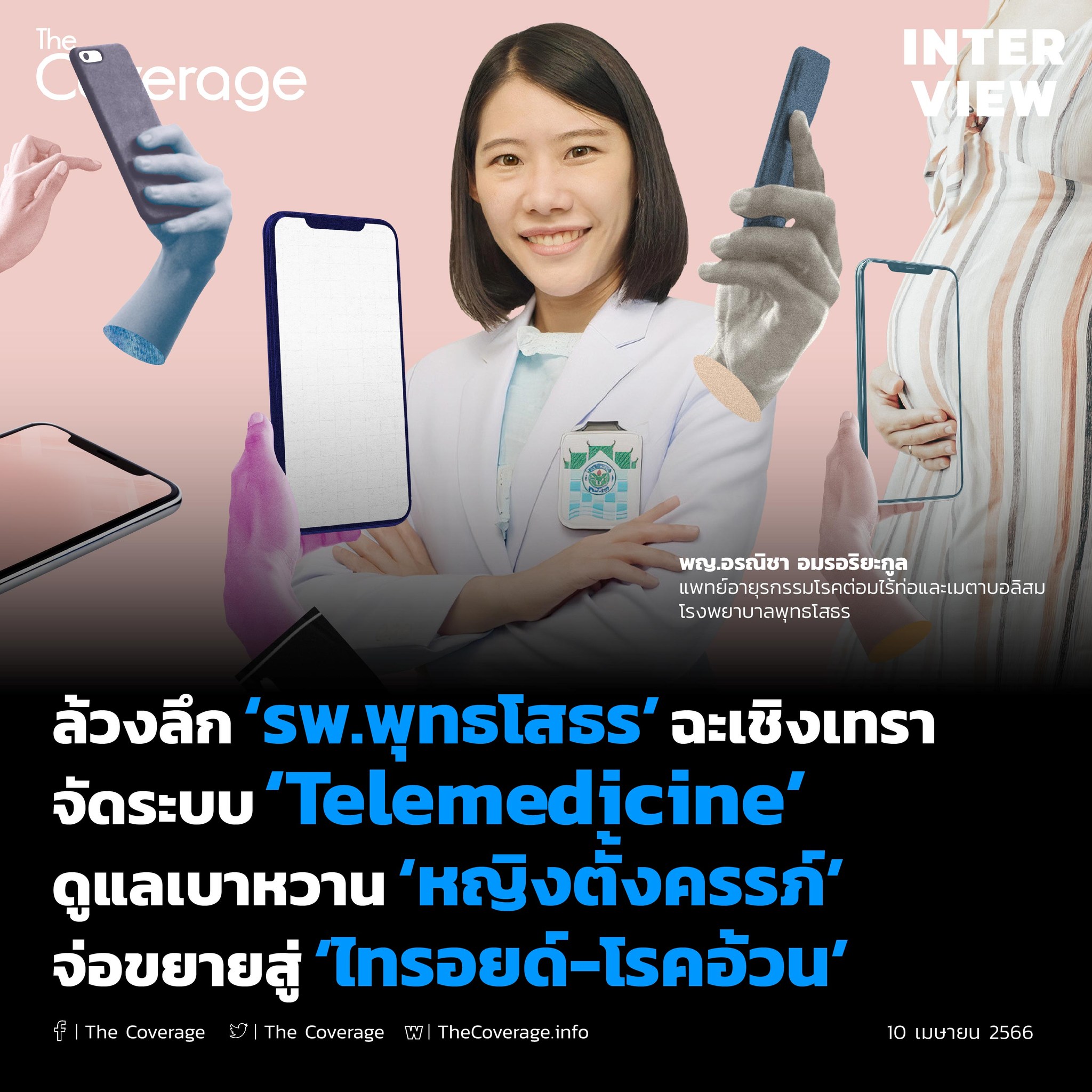The “Puthasothorn Hospital” is a provincial hospital located in Chachoengsao, with a capacity of 595 beds. They have implemented the “Telemedicine” system to provide care for pregnant women with diabetes and are now expanding it to cover thyroid disorders and obesity.
With the easing of the COVID-19 pandemic, several hospitals have started adjusting to the use of technology, and one significant adaptation is the implementation of “Telemedicine.” This approach particularly benefits patients with chronic or uncomplicated conditions, allowing them to receive care and symptom monitoring through app-based conversations or video calls, eliminating the need for in-person visits.
The utilization of Telemedicine has numerous advantages, including reducing the necessity for patients to travel to the hospital, saving travel expenses, and enabling some patients to avoid taking days off work for medical appointments.
The Puthasothorn Hospital in Chachoengsao has effectively used Telemedicine to care for diabetes patients, especially pregnant women, during the COVID-19 crisis. This approach has not only increased the frequency of patient monitoring but has also reduced the risk, particularly for pregnant women with diabetes.
Pregnant women with diabetes require intensive symptom monitoring to prevent any negative impact on the developing fetus. Without proper management, diabetes during pregnancy can lead to a condition known as “pregnancy-induced hypertension” or preeclampsia. This condition can be extremely dangerous, potentially causing seizures and endangering both the mother and the baby’s lives. Additionally, babies born to mothers with uncontrolled diabetes during pregnancy might face various health complications, such as premature birth, low blood sugar, jaundice, and seizures. These infants might also be at a higher risk of developing obesity and diabetes later in life due to their exposure to elevated blood sugar levels in utero.
Research has shown that mothers with diabetes are more likely to require cesarean sections than those without diabetes during pregnancy. This is not due to a lack of willingness but rather a result of the complications associated with diabetes.
Thus, effective management of diabetes during pregnancy is crucial. Dr. Oranicha mentioned that during the COVID-19 pandemic, hospital administrators limited non-emergency cases, leading to a collaboration with the private company “Dietz.Asia” to implement Telemedicine in 2023. This initiative initially focused on pregnant women with diabetes, particularly those with type 1 diabetes and type 2 diabetes, which is the most common type caused by a combination of genetics and lifestyle factors.
In conclusion, the implementation of Telemedicine at Puthasothorn Hospital has proven beneficial for monitoring pregnant women with diabetes, reducing risks, and expanding to cover patients with thyroid disorders and obesity as well. This approach is essential for effectively managing diabetes during pregnancy and ensuring the health of both the mother and the baby.
 Eng
Eng
 ไทย
ไทย  seolounge
seolounge
